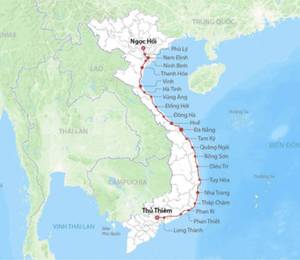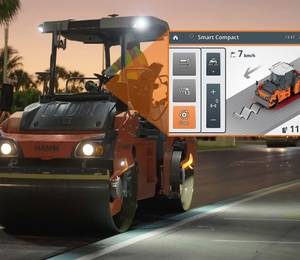Thermal Integrity Profiling (TIP) is a method that has been implemented in drilled shafts and bored piles to offer reliable integrity data for engineers. Shaft excavations have numerous variables to account for, which can impede the installation of a quality concrete pile. Soil inclusions, bad concrete, soil mixing at the bottom, extreme shifting of the reinforcement cage and problems at casting to soil interfaces are just some of the potential issues that might occur. The benefit of using temperature monitoring is being able to detect any abnormalities or major deformities early after casting without having to wait for the information, and this would help speed up the construction process.
The TIP technology from Pile Dynamics Inc provides faster, cost-effective integrity test monitoring. It evaluates the entire cross-section and the entire length of the foundation. The system includes the main unit, Thermal Aggregator Units (TAGs), Thermal Acquisition Ports (TAP Edges), a wire test box and Thermal Wire cables (smart sensing cables fitted with uniformly spaced digital temperature sensors).
The Thermal Wire cables are tied to the rebar cage and cast into the shaft during testing. According to Pile Dynamics, all of the pile can be evaluated by using one Thermal Wire cable sensor every foot along the reinforcing cage, creating a detailed map of data throughout the pile.
The Thermal Wire cables work with TAP Edge to collect data. This data is then transferred from TAP Edge boxes to a TAG unit, sending the data via a cellular modem to the cloud. A TAP Edge or TAG is connected to each Thermal Wire cable and automatically samples data at user selected time intervals, typically every 15 minutes, allowing for real-time data that can be assessed on site or from the office. If an engineer is not on site to review the data, they can quickly access it remotely without holding up the project.
TIP Reporter software displays measured temperatures versus depth, mapped on cross sections of the shaft to provide thermal profiling data. The results of this data include estimated shape of the shaft, the ability to identify regions that are colder than normal, indicating neckings or inclusion, and identifying regions that are warmer than normal indicating bulges. In addition, TIP Reporter estimates the concrete cover along the entire length of the shaft.
The integration of TIP testing and the innovative wireless technology is said to be making strides in the concrete industry, offering faster, more reliable testing methods that save construction time and costs.













